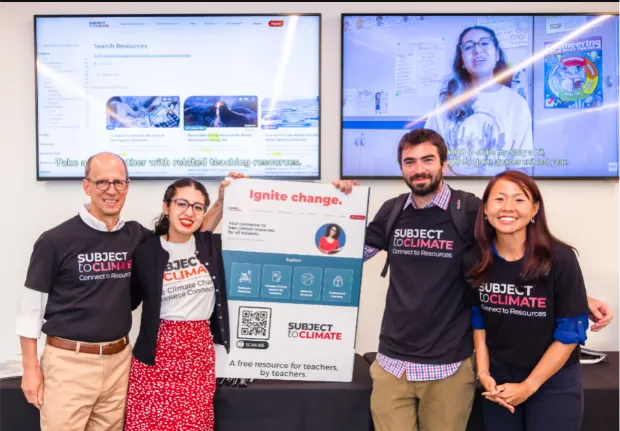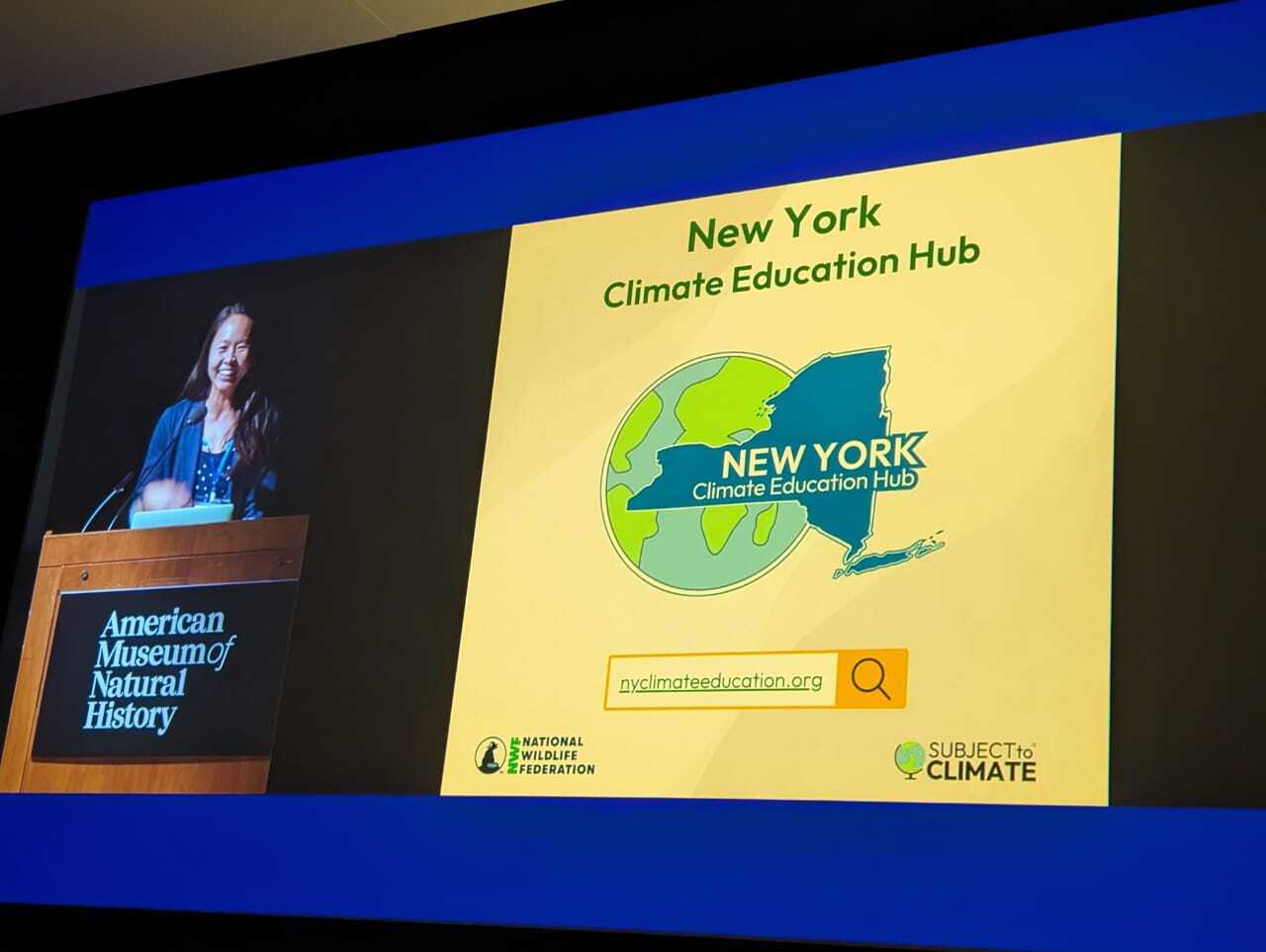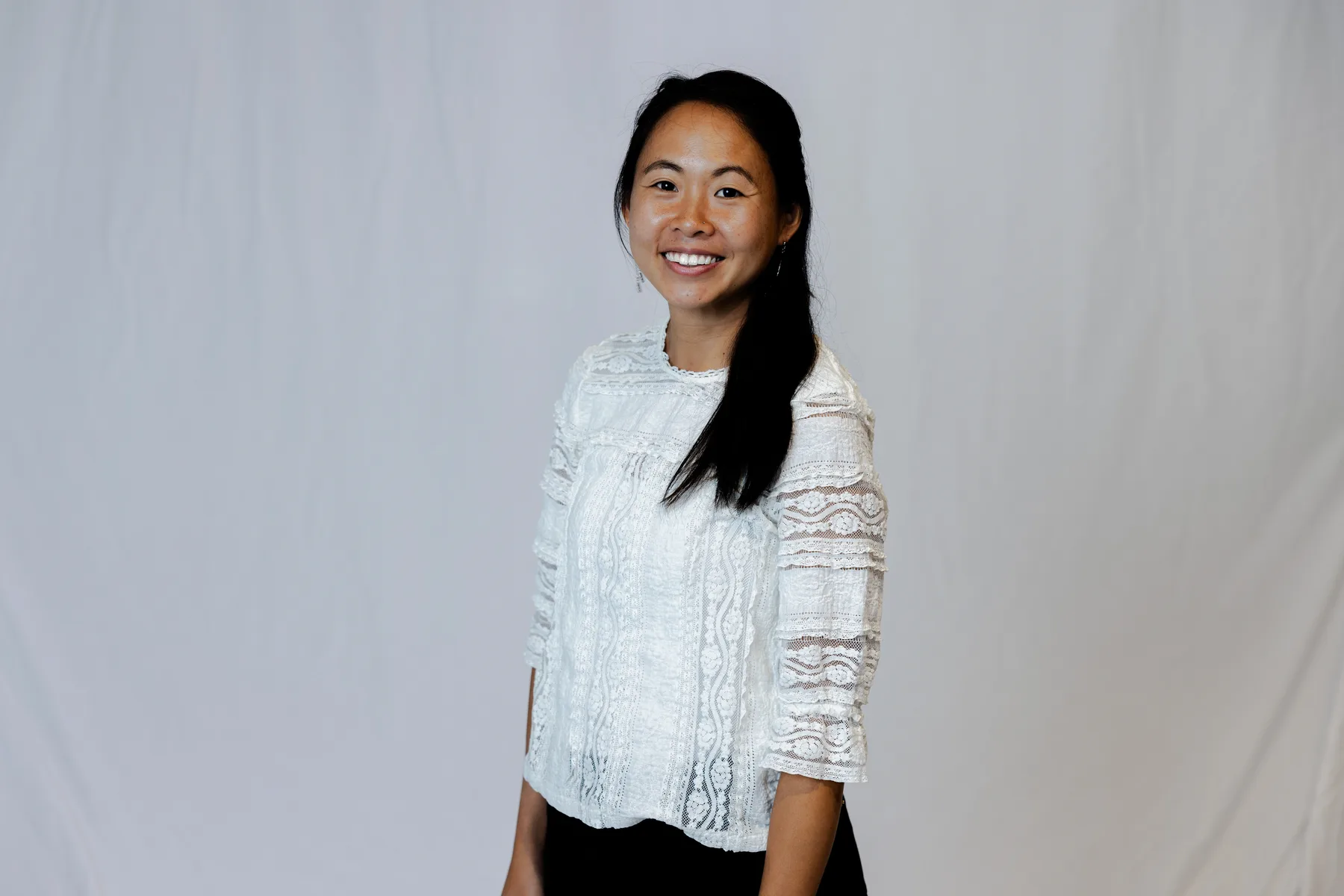We were lucky to catch up with Margaret Wang-Aghania recently and have shared our conversation below.
Margaret, thanks for joining us, excited to have you contributing your stories and insights. So let’s jump to your mission – what’s the backstory behind how you developed the mission that drives your brand?
I’ve wanted to be a teacher since I was five because I believed education could solve the world’s biggest problems. And I still believe that.
I became a high school social studies teacher, but I was very much focused on getting my students to learn the content they needed to pass a high-stakes test. Meanwhile, outside the classroom, I was deeply connected to nature—I’m a trail runner, ultra-athlete, and endurance competitor. For a long time, I saw my passion for the environment as separate from my identity as an educator. That changed when I brought climate issues into my economics class. When my students analyzed the real cost of meat or understood climate change as the ultimate market failure, they became more engaged—not just in economics, but in taking action. Some of them are now studying these issues in college. This when I realized that I could still help my students achieve results and learn disciplinary content all while developing a sense of purpose and agency.
At Harvard Graduate School of Education, I explored policy and EdTech but kept coming back to the classroom: how do we help teachers create these transformative learning moments at scale? I consulted with UNESCO and worked with my professor, writing about climate change education and leadership, but ultimately, I knew technology could bridge the gap for teachers. I knew that we needed to start within the classroom.
That’s why we started SubjectToClimate. I met David Jaffe, my co-founder, at Harvard. He was a retired business person, and we were both intrigued by the power of education. We started talking to a lot of teachers about the biggest issues they faced when trying to integrate meaningful content such as climate change into their curriculum. The overwhelming response was that it just didn’t fit into what they already had to teach. My experience as a teacher resonated as I understood what it felt like to be a teacher, who was passionate about social issues, but felt unable to move beyond the standards or curriculum I had to already teach. As such, we didn’t want to add MORE burden to teachers, an overwhelming position that was already underpaid. Therefore, our mission is to empower ALL K-12 educators to easily and effectively teach about climate change, justice, and action.
Our theory of change is simple: If we make it easier for educators to integrate climate into what they already teach, students will gain knowledge, shift their attitudes, and take action. Research shows that when students learn about climate change, they reduce their own emissions, influence their families, and strengthen community resilience.
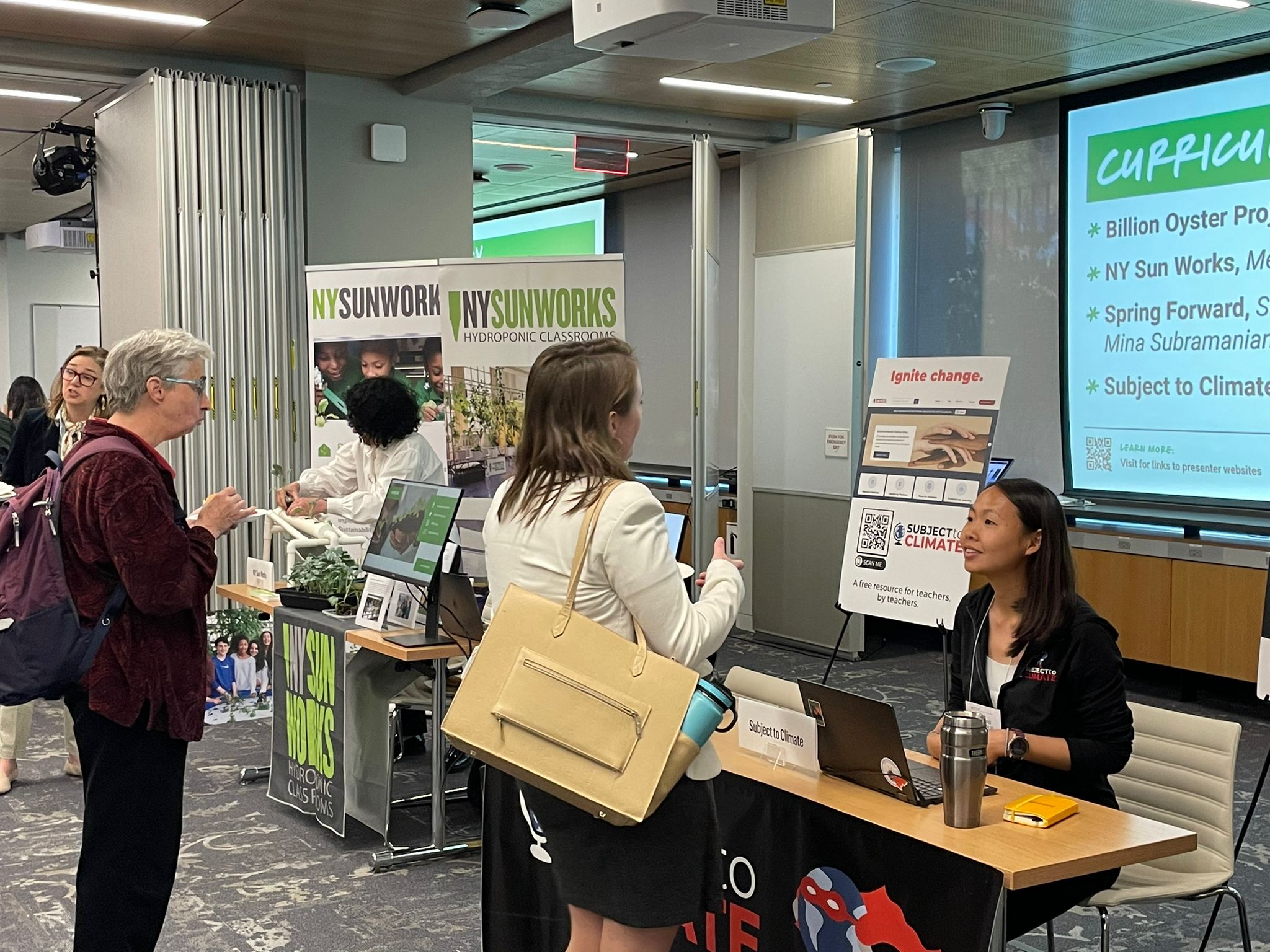

Margaret, love having you share your insights with us. Before we ask you more questions, maybe you can take a moment to introduce yourself to our readers who might have missed our earlier conversations?
SubjectToClimate started with a simple but urgent mission: to empower all K-12 educators to easily and effectively teach about climate change, justice, and action. What SubjectToClimate has evolved into is a free platform with teacher-designed lesson plans, curated resources, and professional development opportunities to enable all K-12 educators to easily integrate climate change into what they already teach.
Our core platform, www.subjecttoclimate.org, is designed to remove barriers for educators who want to teach about climate change but may not have the time, confidence, or background knowledge to do so. This includes:
– A teaching resource library where we curate materials, align them to teaching standards, and enrich them with synopses, teaching tips, and scientist notes
– Teacher-designed materials that show educators how to integrate climate change into what they already teach
– News articles for students that can be differentiated by reading level through our partnership with The Juice
– Professional development opportunities such as courses, guides, or webinars on climate change basics and teaching methods, including SubjectToClimate’s 3-part climate education training modules
– Climate change explainers, a support center developed in partnership with MIT Environmental Solutions Initiative, that answers questions about climate science and pedagogical strategies
– Guidance for school boards and administrators looking to scale climate change education in their schools
We recognize that effective climate education must be place-based, reflecting the unique environmental and social landscapes of different communities. In other words, we built state hubs to make climate education locally relevant. That’s why we focus on hope, not doom, with lesson plans that move students from worried to activated. Because when teachers are supported, students not only learn, but they also lead within their communities. This work means that we:
– Convene committees composed of educators, nonprofit representatives, government agencies, and climate stakeholders within a state to provide feedback, ensuring that a customized state climate education hub addresses local educational needs and climate issues effectively.
– Customize our core platform to suit local contexts and enable place-based learning. This involves building a unique website, aligning our teaching resource library with the state’s educational standards, and sourcing location-specific resources and professional development opportunities.
– Spread awareness and provide professional development to educators to integrate place-based climate change into their classroom
– Work with educators within the state to publish exemplar place-based lesson plans that reflect the unique characteristics of their region
I’m most proud of the moment when we present our free website to teachers. Teachers react with joy in finding resources that fit into what they already teach; they also start to see themselves as part of climate action without adding more stress to their workload. Here is a quote that represents this: “After interacting with SubjectToClimate’s resources and professional development, I realized you don’t have to be a super climate person in order to use the lessons, in order to teach climate… you can do it in so many ways.”
Another thing that I am proud of is having a team of former teachers. Everything that we do is through a teacher’s point-of-view, understanding the immense pressure that they have. Everything that we do is to try to make their lives easier.
I am also proud of the work that we elevate in our hub. Through this work, I’ve been able to meet so many amazing people creating amazing content for educators. There are truly so many people behind the climate education movement, and the more we get their materials into teachers’ hands, the more I believe we are collectively working towards climate solutions.
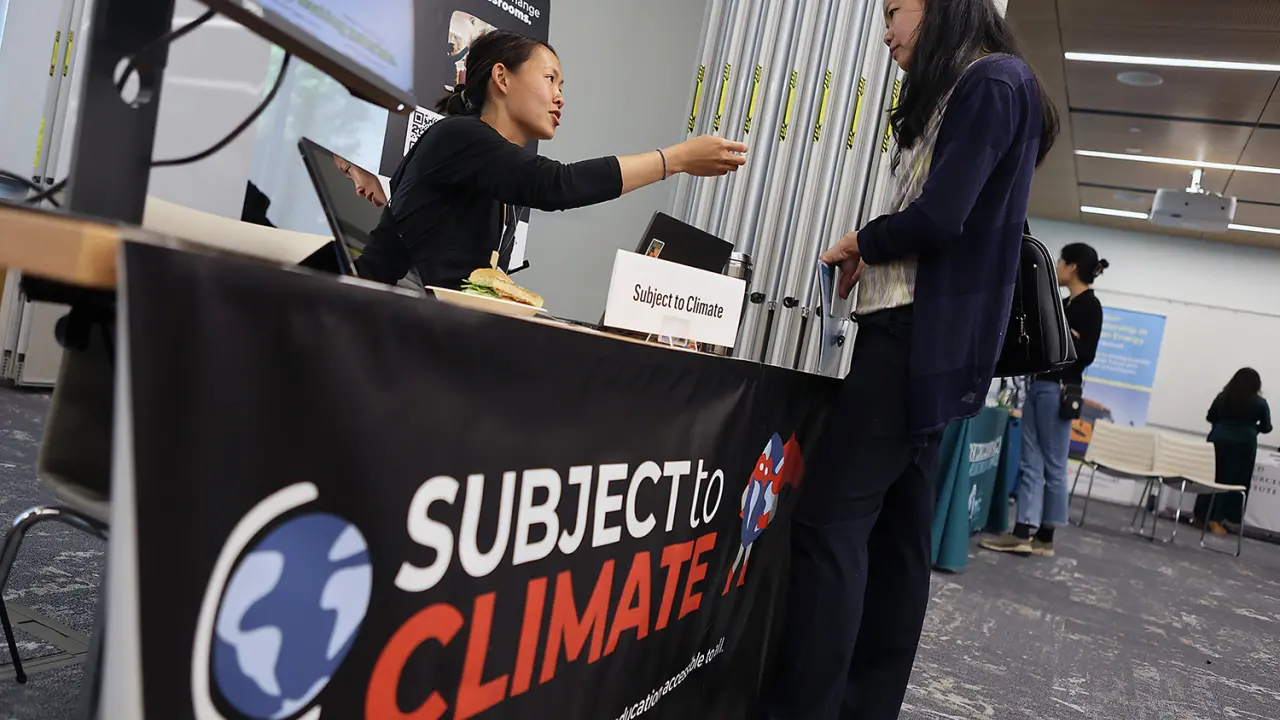
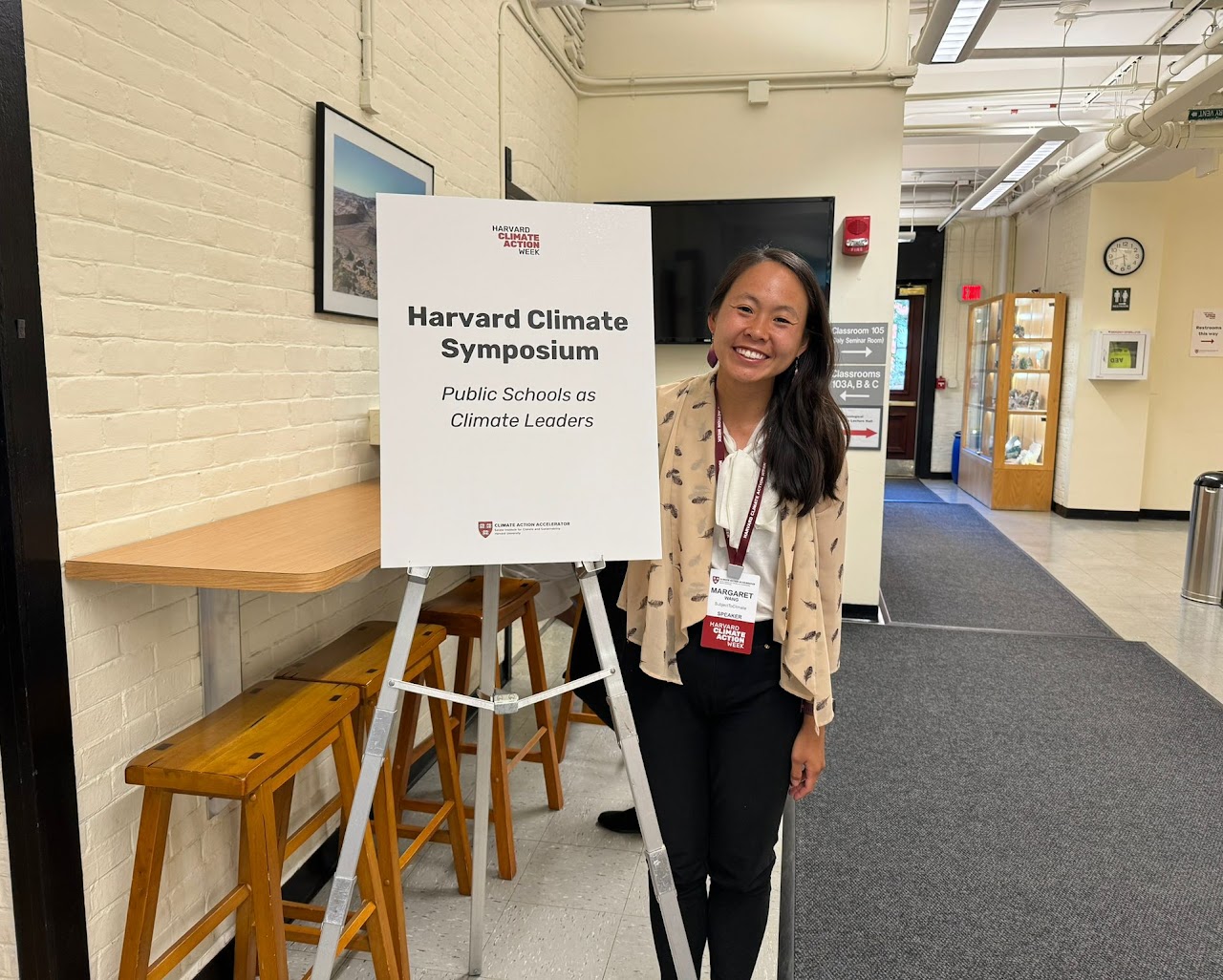
How’d you meet your business partner?
I met my co-founder, David Jaffe, while I was doing my Master’s in Education at Harvard. David was part of the Harvard Advanced Leadership Initiative (ALI), a program designed for retired professionals looking to pivot into social impact. We came from very different backgrounds—he had decades of business experience, and I was a former teacher passionate about climate education—but we were both drawn to the same problem: how to transform the education system to be a part of climate action.
The idea for SubjectToClimate actually started as a class project. I was in a course with Fernando Reimers, where I teamed up with a classmate, David Rhodes, to design a climate change leadership curriculum. During COVID, we presented our climate curriculum in a webinar, and David Jaffe happened to be on the call; he was simultaneously working on a capstone project for the Harvard ALI program. He reached out afterward and told us that his capstone project was focused on climate education. What I appreciated about him was his approach—rather than jumping straight into building something, we spent the next six months simply listening. We talked to teachers and experts, trying to deeply understand their needs. Some teachers even shared their screens with us over Zoom, showing us how they searched for resources.
That’s when we had our big “A-HA” moment. There were so many incredible climate education resources out there, but teachers often gave up when they couldn’t immediately see how they fit into their existing curriculum. That insight shaped everything we did moving forward.
From there, we started building wireframes and prototypes before even hiring a software developer—who, by the way, we could only afford for about 3-4 hours a week! We created a simple landing page to share our vision, and to our surprise, teachers started signing up for our newsletter. The feedback was overwhelmingly positive. That’s when we knew we were onto something.
In August 2021, we officially launched SubjectToClimate. It’s been an incredible journey, and at the heart of it is a simple idea: when you make climate education easier for teachers, you empower an entire generation to take action.
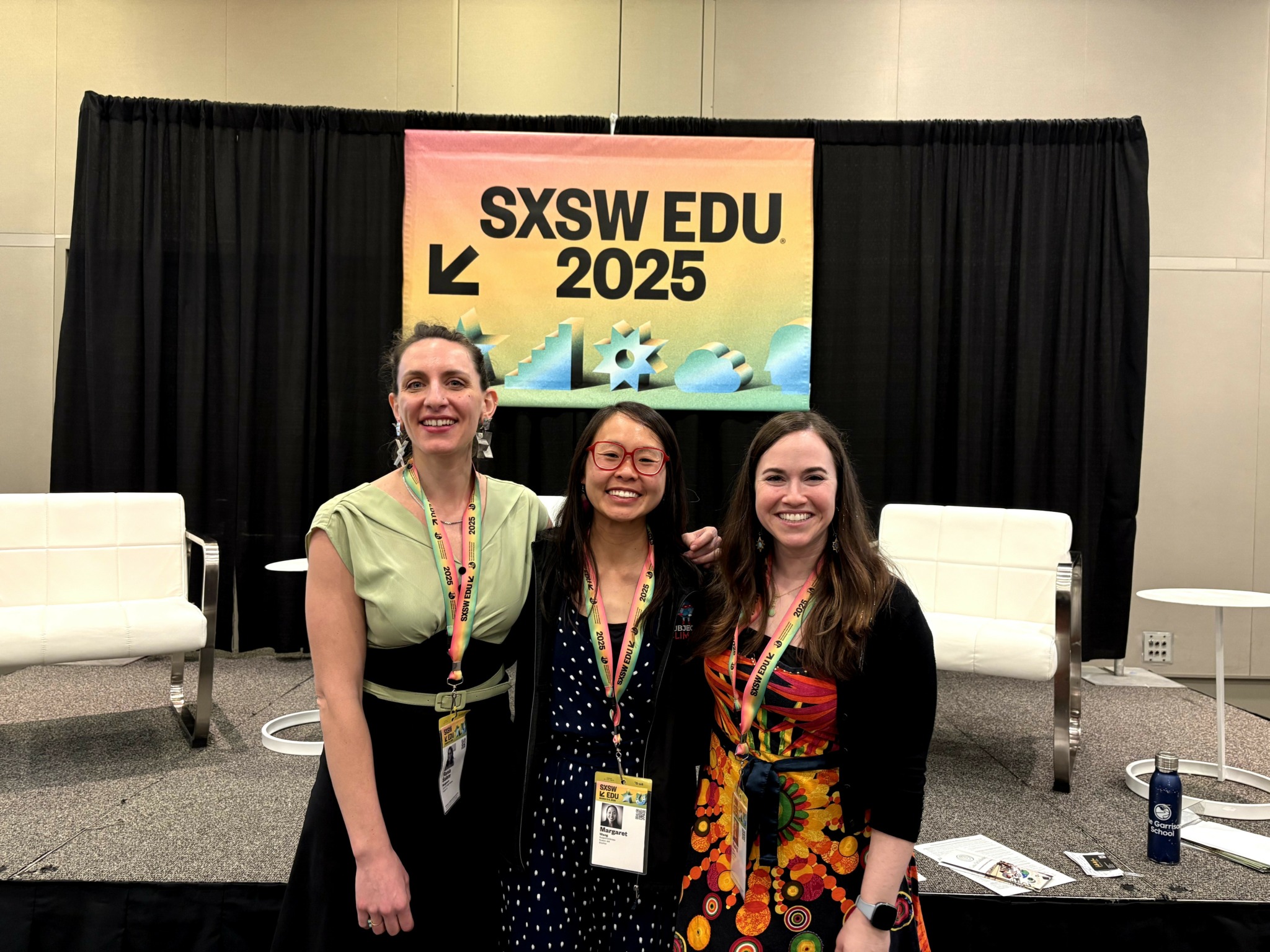
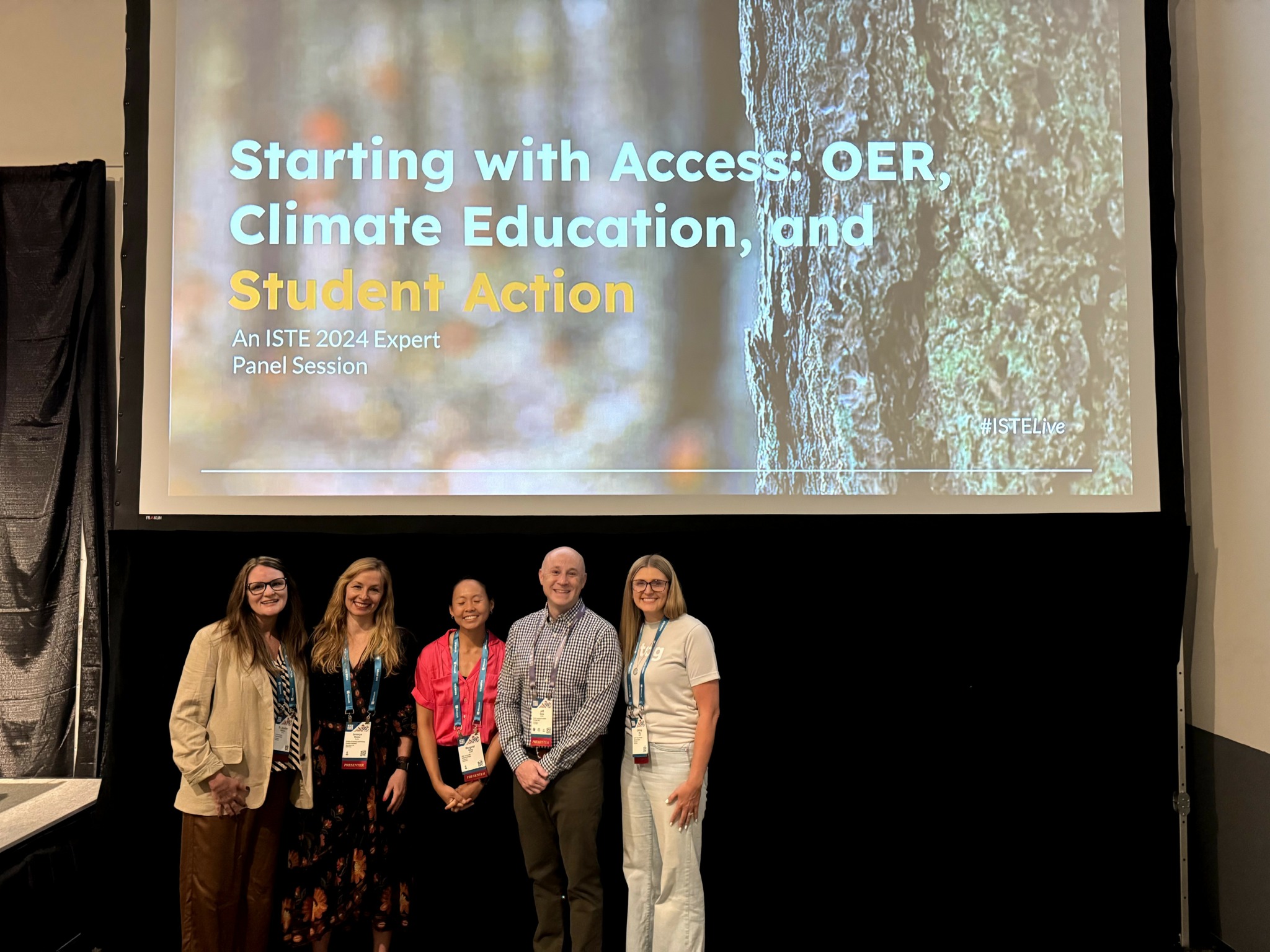
Can you tell us about a time you’ve had to pivot?
One of the biggest pivots we made at SubjectToClimate happened about six months after we launched. At that time, we were still figuring out how best to support teachers in integrating climate change into their classrooms. Then, we got a game-changing piece of news: New Jersey had just become the first state to integrate climate change across all grade levels and standards.
Through a friend of a friend, we were introduced to a nonprofit that was convening a committee of thought leaders to determine the next steps for supporting educators. We were thrilled when one of their key recommendations was exactly what we had been working on—ensuring that teachers had access to quality climate education resources.
At that moment, we knew we had to act. Here was a state where teachers would explicitly need to teach about climate change, and here was a report highlighting a gap we were already positioned to fill. So, we jumped in and worked alongside this group to co-develop our very first state hub: The New Jersey Climate Education Hub.
This experience taught us the power of coalitions and collaboration. Organizations like the National Wildlife Federation, New Jersey Audubon, the New Jersey School Boards Association, Sustainable Jersey, and The College of New Jersey all came together to shape what the hub would look like. We didn’t reinvent the wheel—we kept the same backend we had already built but curated New Jersey-specific resources, aligning them with state standards. We also trained a cohort of New Jersey educators to create lesson plans that reflected local climate challenges and solutions.
The response was incredible. We got a lot of press, and soon after, other states started reaching out, asking how they could create their own climate education hubs. It’s been amazing to see how different states are prioritizing environmental education and how passionate local advocates are about making this happen in their own communities.
The fun twist? I actually got my teaching certification in New Jersey. I would have never guessed that New Jersey would be where we built our first state hub—or that it would be the first state to lead the way in integrating climate change across all grade levels and standards. It’s been a full-circle moment in the best possible way.
Contact Info:
- Website: https://subjecttoclimate.org/
- Instagram: https://www.instagram.com/subjecttoclimate/
- Facebook: https://www.facebook.com/subjecttoclimate/
- Linkedin: https://www.linkedin.com/in/margaret-kathy-wang/
- Twitter: https://x.com/subjecttoclimat
